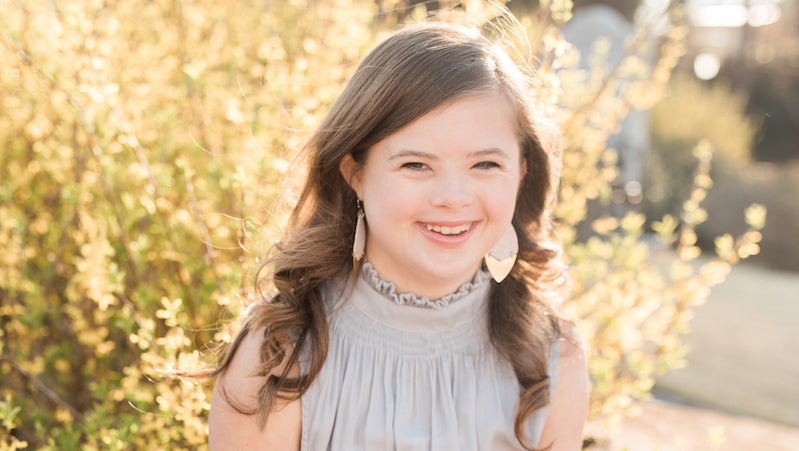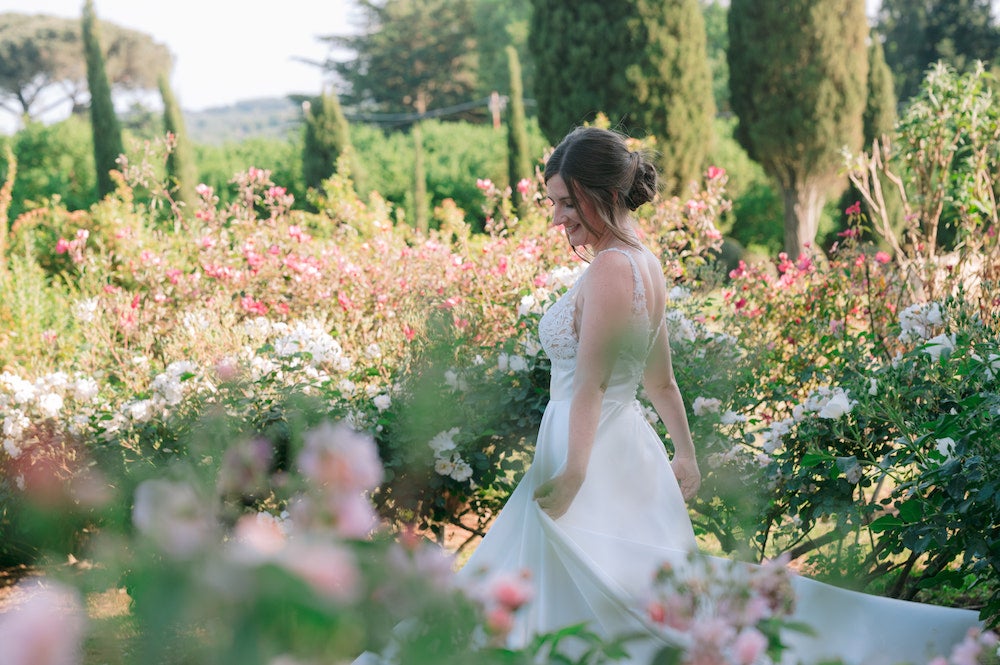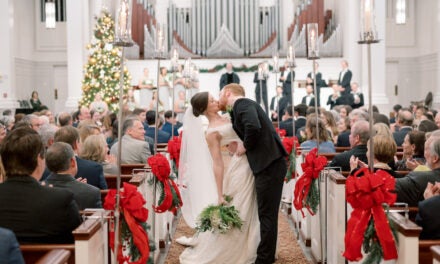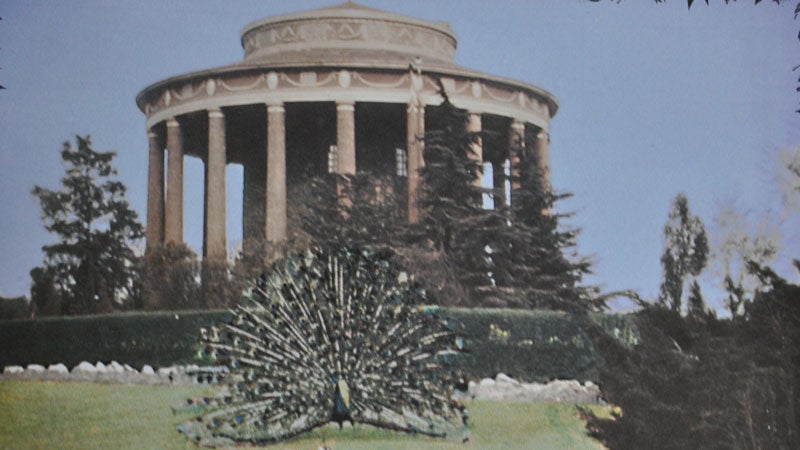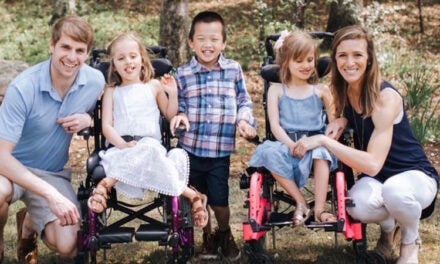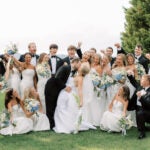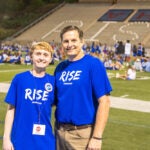It’s two minutes to go in the girls’ state basketball championship playoffs at Wallace State Community College in Hanceville, Alabama. The Vestavia Hills team trails Spain Park by just a few points, and the kids in the stands are on their feet, screaming.
“Let’s go, Rebels!”
If they lose this game they’re out—their season over.
Over on the sideline, the cheerleaders believe.
“R-E-B-E-L-S, Vestavia Rebels are the best! Whoa-oh! Whoa-oh!”
They clap, they wave their pom-poms, and if one cheerleader stands out at all, it’s not just because she’s tiny, though she’s a foot shorter than most of them. It’s the little extra OOMPH she puts into her hips when she swings them in the “whoa-ohs.”
And this is the time to give it her all. When this game is over, if it ends in a loss, it will be the last time Grace Davis cheers. Her last day in the skirt.
Grace’s mom looks like she might cry. She’s watching her oldest child move on, crossing the threshold of all the “last things” a mom marks as her child approaches graduation.
Being a cheerleader isn’t something Laura Davis ever thought her child would do. But then, if she’d believed the geneticist at the hospital, she wouldn’t have believed her daughter would ever walk, talk or run. Forget about doing cartwheels and round-offs and standing on top of a pyramid of girls on a basketball court.
Grace Davis was born with an extra chromosome. That’s it. But with that extra genetic material came some challenges. Down syndrome generally causes developmental delays, intellectual disabilities and lower muscle tone.
But Grace Davis has gifts, too. And she’s not like everyone else. For one, she started to read at 22 months. That’s right. Twenty-two months. Most children don’t start reading until age 5 or 6. But like I said, Grace Davis isn’t like most. She works harder than most. And she doesn’t give up.
So, when she came home one October day during her first year at Pizitz Middle School, after a particularly inspiring pep rally, she told her mom she wanted to be a cheerleader.
Now, most moms of girls who want to be a cheerleader worry about how their child will handle the disappointment if they don’t make the team. Cheerleading tryouts can be an emotional minefield for girls already struggling to find their place in middle school. But disappointment is a universal part of the human condition, and since Laura had never tried to limit her daughter’s experience or tell her what she could or couldn’t do, she simply shifted her mindset into giving her daughter the tools she would need to do her best. The only thing is, most girls who want to be cheerleaders take classes geared toward cheerleading for years before trying out.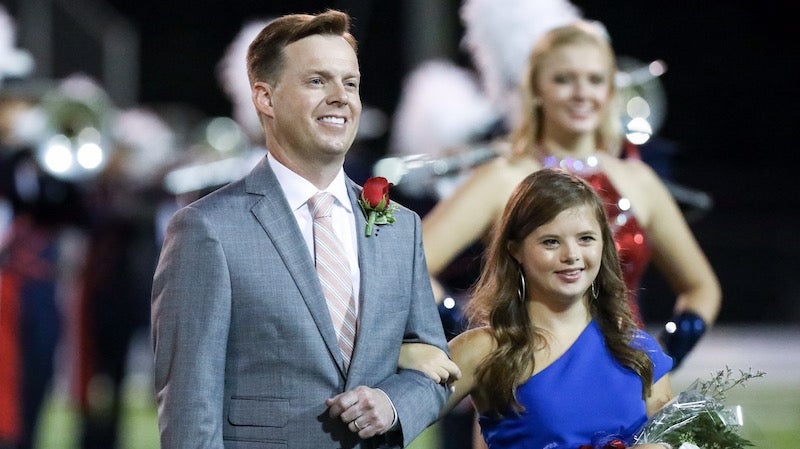
Grace was only going to have four months. “Wow,” Laura thought, “I guess I better find a cheer class. “
Fortunately, Grace had been taking gymnastics since kindergarten, so she had that. Laura put Grace in a cheer class and hired a private coach, Missy Kitchens, who formerly cheered at VHHS and Auburn.
Now, when Grace walked into Missy’s cheer room, Missy didn’t size her up as someone who would or would not make the squad. She doesn’t do that with any of her students. Her job is to make them the best they can be. And to remind the girls that they are more than the skirt. That cheerleading does not define them. It’s something they do. And if they don’t make it the first time, they have a whole year to get better before trying out again.
One of the first things Missy noticed was how limber Grace was, a gift Down syndrome bestows on many. But more importantly, Missy noticed how well she picked up the moves and routines. “Grace did the same required jumps, cheers, chants and dance as the other girls,” she recalls. It was no time at all before Missy saw how much Grace loved tumbling, including being the flyer (the person lifted up in the air during a stunt). “Grace is an inspiration to us all,” Missy says today. “I love being a part of her life.”
Right there beside Grace, also trying out, was her best friend Emily Glaze. Emily, also now a senior and cheerleader at Vestavia, can’t remember a time before she knew Grace. They met when they were 2, and Grace and her family moved in three houses up the street. Their moms became fast friends and so did the girls.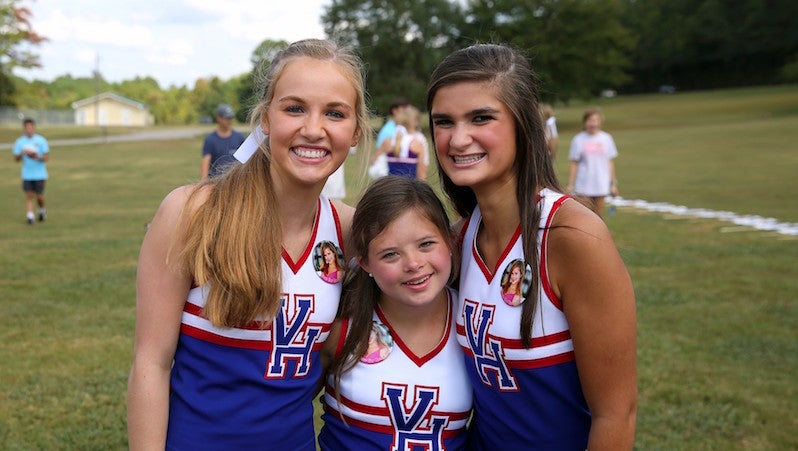
It would be easy to assume that Grace gets her confidence from Emily, but Emily says it’s the other way around. “I just remember in middle school I would always be so nervous to walk into school at first, just because, IT’S MIDDLE SCHOOL, and it’s scary, but she would be like, ‘Come on!’ and I would walk in with her and it would help me.”
It was the same with other things. It wasn’t Grace doing whatever Emily did. It was Emily following Grace.
“I think she’s helped me come out of my shell. Like, with cheerleading. I didn’t want to try out for that. And then when Grace said that she wanted to try out I was like, ‘Well, I guess I’ll try out, too.’”
You could say that’s another of Grace’s gifts. Grace is blessed with a personality that doesn’t spend time thinking about whether or not she will fail at something new. She just sees something she wants to do and goes for it.
Grace’s mom says a lot of who Grace is today is because of Emily’s friendship, but Emily says it’s the other way around. “I just feel like whenever I’m around her she brings out the best in me.”
After cheerleading tryouts that first year, Grace and Emily waited together for the results to come in via the computer. Emily made it. Grace did not. But the first thing Grace said was, “Let’s have a party for Emily!”
It was then the wheels of Vestavia went into motion. Someone—not Grace or her mom—started an online petition to create a spot for Grace. She had done all the routines, completed the exact same tryout as the other girls. Surely, the petitioners wrote, Pizitz could make a place for her. Which they ultimately did, as did VHHS. Technically, they may call her the Spirit Girl, but to see her in motion is to see she’s a full-on part of that team.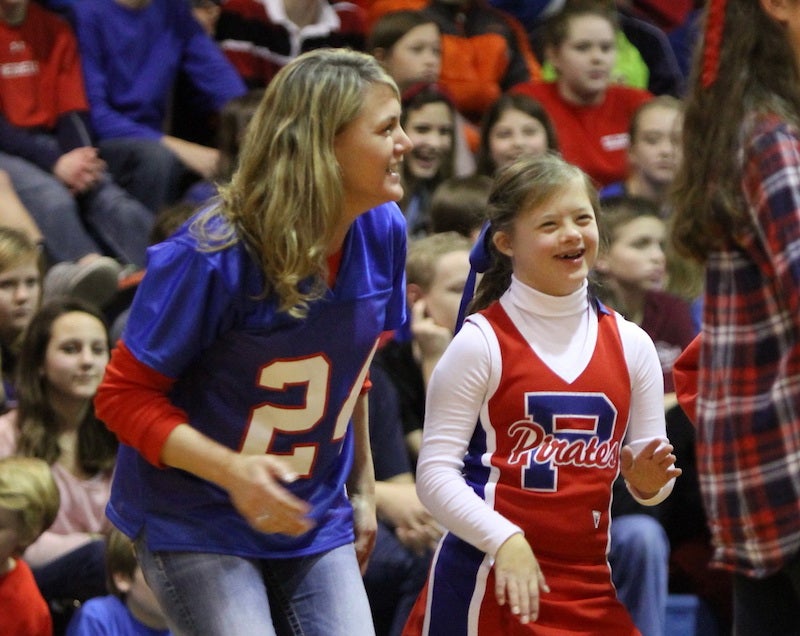
And so, it was Grace and Emily, together again. On the court and off, they’re like pretty much every high school student you know. They like school, but mostly because they get to see their friends there. They hang out together, go to dinner, movies, have slumber parties. They went hiking with friends recently, and Grace had to work hard to keep up, but she did.
Emily will be going to Auburn in the fall, and, this just in: so will Grace. She’ll be attending Auburn’s EAGLES program, a four-year course of study for students with intellectual disabilities. Just like any other student, Grace’s goal after graduation will be to find a job and live independently. 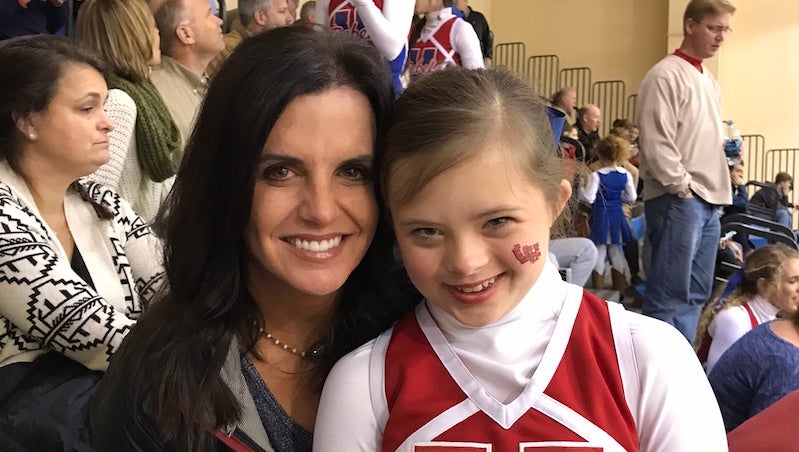
But not today.
Today, she’s still a senior in high school cheering on her basketball team at the state championship playoffs.
The buzzer rings and Vestavia loses. The players are done and so are the cheerleaders, who will soon be going their separate ways. Emma Gardner, Grace’s, pulls her in for a hug, cradling Grace’s head for a moment so tender and full of love, it’s almost maternal. They close another chapter in their lives and gather outside the locker room, holding on to each other and fighting back tears.
Grace holds them off until the car ride home, when she rides off into her future, just like any other high school student about to graduate: a little sad, maybe a little scared, and a lot excited.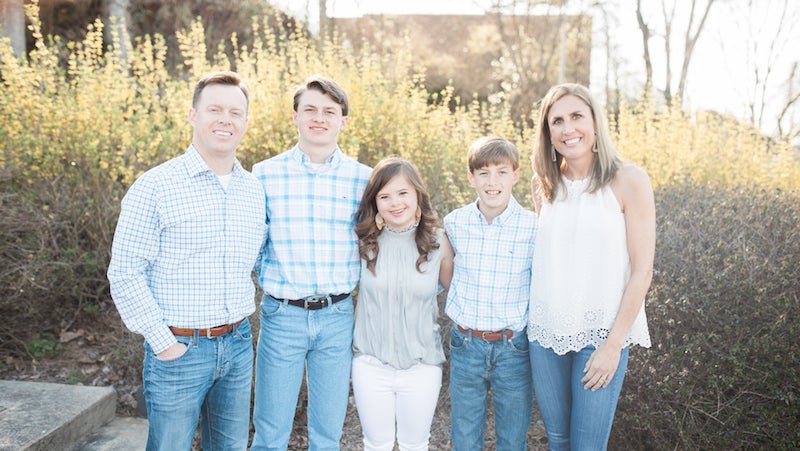
10 Things About Grace
Favorite Activities: Cheerleading, gymnastics, dance, chapel choir at church
Favorite Subjects: English and Government
Favorite Thing About School: “Getting to see my friends every day.”
Favorite College: Auburn
Favorite Singer: Carrie Underwood
Favorite Movie: The Greatest Showman
Favorite Summer Activity: Being a Summer Show Offs counselor
What She’s Most Looking Forward at College: “Learning how to get a job and living in a dorm room with my friends.”
Job She’d Like After College: Preschool teacher
What She Wants You to Know about Her: “I’m funny and I love my life.”
The Magic of Rebel-Up
If you were looking for a model of how to include students with disability into the greater high school community, VHHS is a good place to start. Emily and Grace are co-presidents of the Rebel-Up Outreach club, an organization that raises awareness and acceptance for individuals with disabilities. It’s one of the biggest clubs at the school with over 130 students. Grace’s mom Laura credits the level of inclusion at VHHS to its Exceptional Education teacher Jennifer Greer, who says all it takes is getting the students together.
“The more the students are around students that have a disability or ‘different abilities,’ the more they get to know them and genuinely want to be their friend. In the beginning, students are afraid of the unknown and they are not so sure how to act or what to say to someone that has a disability,” Jennifer says. “And once they realize that [they] can talk to them just like [they] talk to anyone else and that [they] are more alike than different, then the doors start to open and the friendship begins. They’re calling kids from the club to take them to the mall, to the movies. They’re taking them roller skating, and it’s not just a project. It’s because they really love being around them.”

